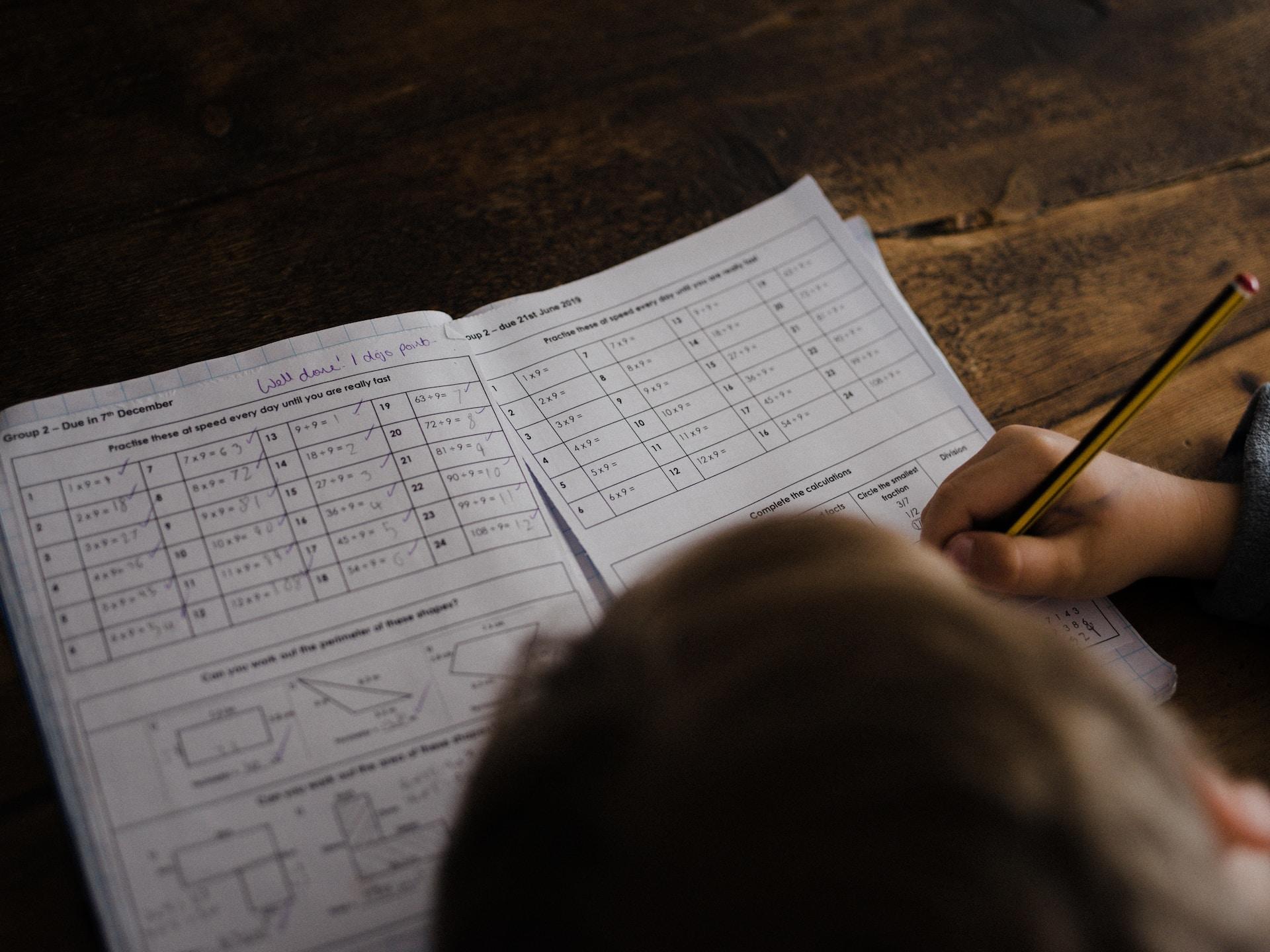Getting good at maths is the dream for many students but it should be a goal for everyone. University surveys routinely reveal that students wish they had learned financial literacy before beginning their tertiary education. This lack of mathematical knowledge affects everyone. Most adults have trouble keeping up with their finances; even everyday mathematics escapes them.
A person with a good understanding of mathematical principles is usually at ease with related concepts even if they don't excel in all fields. That's because doing maths is not about the ability to work with numbers. Maths is fundamentally about logic and reason; numbers and operations are just symbols representing those two concepts.
As one maths tutor Perth is fond of saying, anyone can be good at maths. You only need to tweak your thinking patterns and a shot of confidence to find joy in math problems. Indeed, they aver we all do math every day without even realising it. Read on to find out how that can be.

How to Learn Maths
Are we born either good or bad at maths? One might say "I have no head for numbers" to explain a failure to use basic mental arithmetic. But as we said in this article's introduction, mathematics isn't about numbers, it's about how you think.
Working from that premise, we have to dismiss the idea that people are born either good or bad at maths. At best, we might be born with an innate ability to think a certain way. It's more likely that circumstances shape our thought patterns.
That gives even the most maths-averse numbers haters a reason to believe that they, too, can become proficient at mental maths. Just think about some of your daily experiences. You're sure to realise that you routinely apply logic to arrive at conclusions.
For instance, you might look at the queues in the supermarket to estimate which one will be the quickest. During your seconds-quick scan, your brain assesses the number of shoppers, the fullness of their trolleys and the cashier's speed. You come to the conclusion that the slightly longer line with the faster cashier will get you out of the store sooner, even though a couple of trolleys are pretty full.
You might scoff at such examples being in any way mathematical. "It's just common sense!" you might proclaim. That's true, but that's exactly what math is. If you practise this type of thinking, you have a mathematical mindset.
Why not take it further? You can get better at solving mathematical problems with just a little practice. You might need a bit of maths tutoring to get on the right track but soon, you too could be calculating percentages and proportions without a calculator.
It all starts with mastering basic math concepts. Knowing multiplication tables is essential as they underpin so much of the mathematics we use every day. Building your numbers sense will also go a long way to developing your maths mindset.
Numbers sense is a strange name for this concept. The Arabic numerals we use have no value, yet we all accept that the figure '5' represents five of something. Likewise, most of us understand that the figure 5 represents a greater value than the figure 2.
Most of us take our numbers sense for granted as it manifests and we fail to cultivate it. Building your numbers sense means developing flexibility in working with numbers. It's almost like having language sense. The more you internalise a language's mechanics, the more fluently you can speak it.
Concepts like ranking, rounding, estimating, and measuring all rely on numbers sense. You can determine the magnitude, fraction or percentage of something with a well-developed numbers sense. Likewise, you can compare two values to determine which is the bigger or smaller.
Neurological conditions like dyslexia and its maths cousin, dyscalculia can impede your ability to develop your numbers sense. Should you learn with such a condition, a maths tutor Sydney can adapt lessons to your individual needs. With such guidance, you can make steady progress towards developing your sense for numbers.

A Math Tutor Recommends
Being good at maths isn’t a question of natural ability, as you've just read. You can take various approaches to maths studies, all of which have positive effects and outcomes. One maths tutor in Townsville offers the following tricks to improve your math skills.
Understand First & Learn Maths Second
Succeeding in maths boils down to being able to explain your reasoning. Explaining your reasoning depends on understanding the logic behind it. As we've already seen, logic and reasoning underpin every maths concept. Being shown how to do mathematical operations without understanding why they're necessary makes for a poor education - and poor skills development.
Thus, you should try to understand the reasoning behind maths, what its concepts are for, and how they work. You'll find your progress exponential and soon you’ll be able to calculate results rather than just memorising what's supposed to be without being able to answer math questions.
This can sound like a bit of a paradox when we’re talking about Maths. However, it’s useless learning everything by heart if you don’t have a clue how to use what you’ve learnt. It’s great to learn maths concepts but if you don’t know what they're for and how to apply them, it’ll all be for nothing.
Rote learning is the bane of compulsory education, particularly in mathematics. Your teacher does an admirable job of presenting facts but the fast-paced curriculum leaves little time to explore them in-depth. As students careen from algebra to geometry and then to trigonometry, understanding the point and purpose of these concepts becomes more difficult.
This applies whether you're studying maths in or out of school. As an adult building maths skills, avoid the practices that served you poorly in the past. Find a maths tutor who will make sure you understand each math concept before moving on to the next one. When you get to the point that you can talk someone else through their math problems, your understanding of these concepts is complete.

Choose the Right Methodology
How you prepare for and tackle math work are important considerations. One online maths tutor I know insists that if students approach maths learning with a sense of dread and resent every worksheet, they ensure themselves a poor result. Likewise, if their work is disorganised, their thinking is, too. You won’t be able to do anything with the numbers and formulae in front of you.
Public education's one-size-fits-all strategies do students a disservice. They do not account for individual learning preferences and leave little room to test out other learning methods. We can hardly blame the teacher, though. With so many students per class and so much maths to teach, there are few resources and little time to take a personalised approach.
That's why you have to be your own teacher and build your math skills according to your learning preferences. Your first step should be adopting the right attitude. If you resent doing maths, you'll have a harder time embracing math concepts. Remember that you're building far more than math skills when you solve math problems; embrace the chance.
Whether you're still in school or your school days are long past, a few tips and tricks on how to become a good maths student will help you hone your math skills. These, coupled with an open attitude towards maths will soon make you a mental maths master.

Maths Tuition and Common Maths Mistakes
To improve in maths, you don’t have to take special classes. You can learn on your own; just be sure to avoid bad study habits. Focusing on how to avoid these common mistakes is a great way to boost your math skills.
Don't reach for your calculator; practise mental maths. A calculator is handy but it doesn't help you build math skills. Try to answer math problems on your own and use the calculator only to check your answers.
Don't practise maths only when you have to, make it a daily habit to exercise your math skills. Be careful to not repeat the same exercises, though. Give yourself a new task each day. You might run through multiplication tables one day and calculate percentages the next, for example.
Never fail to review your work. Misunderstanding word problems and overconfidence are perfect examples of mistake-making in haste. You should correct any errors in your work before moving on to the next problem. As one Maths tutor Brisbane points out, the confident math student isn't afraid to correct their own mistakes.
Don't neglect fundamental math rules. Countless students have gotten bad marks on maths papers for overlooking maths' order of operations and properties of numbers. Examples such as these demonstrate a lack of mathematical thinking.
Don't be afraid to ask for help. If you live in Melbourne, you might search the internet for maths tutors near me to find someone who can help you understand math fundamentals.
Summarise with AI:















